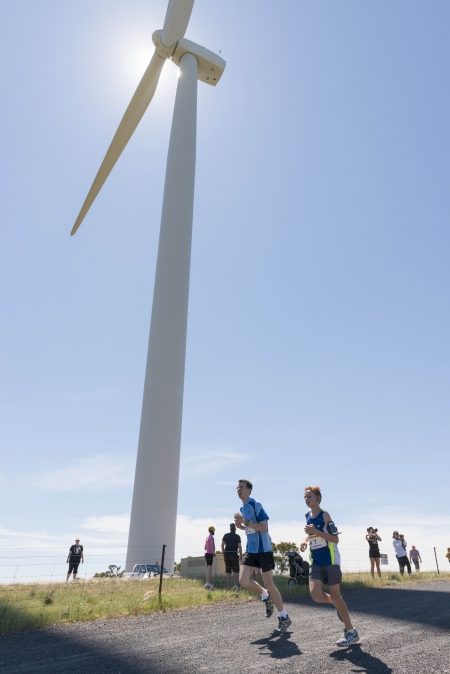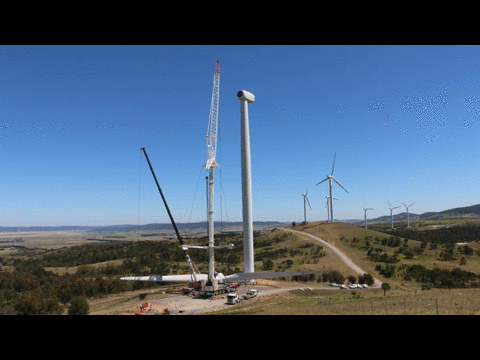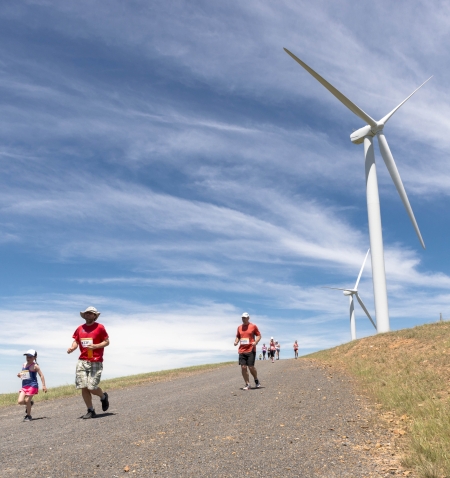Improving the Quality of Community Engagement
Infigen is hosting a fun run at the Woodlawn wind farm on Sunday, 11th October 2015. The fun run is open to everyone – to families looking for a different kind of a Sunday walk as well as ambitious trail runners with their eyes on the cash prize.
This time the event coincides with the official Australian Wind Farm Open Day, as part of the Clean Energy Council and its members’ effort to invite the public to wind farms in more tolerable weather conditions than the Global Wind Day, held annually on 15 June (there are days in Australian winter when all the hot tea and cakes in the world aren’t enticing enough to contemplate visiting a wind farm).
The ‘Social Licence to Operate’

<[>Infigen’s fun run is taking place for the fourth year. Infigen has a community engagement policy in place to promote awareness about renewable energy. Transparency, openness and a reliance on scientific facts are all important parts of this venture. Infigen uses the Global Reporting Initiative framework to report on its sustainability performance across environmental, social and economic dimensions (see the latest Safety & Sustainability report here).
After many wind farm visits, open days and community events, Australian clean energy developments can still encounter opposition and political attacks. This raises an unnerving possibility: perhaps efforts to be a good corporate citizen aren’t sufficient in increasing the quality of community relationships across the country.

As we raised this conundrum with our colleagues, we concluded that events like Run with the Wind which have their own purpose – be it fundraising for a community cause or for the purpose of making art (e.g. the Hepburn wind murals) – may be highly beneficial for the relationship between the wind farm owner-operator and the community, and the company’s brand (as long as the event is well-managed), but they tend not to have an effect on the broad and complex network of anti-wind farm groups, adherents to older forms of technology like coal or political campaigns. It is probably somewhat naive to expect broad political change from single events.

Do we then think we have a social licence to operate? With a constantly shifting political landscape, we hardly see reason for complacency. Over the years, the wind industry has had some hard lessons with practical, financial and legal implications from poor community engagement. The Clean Energy Council’s Community Engagement Guidelines aim to commit wind developers in responsible engagement to win the support of the community. If we see hundreds of runners at Woodlawn this year, we’ll take it as a testimony that we shouldn’t give up just yet.
About Run with the Wind
All net funds raised from the event go directly back to the community, and there are several community-run stalls at the event.
For logistics, travel information and schedules, please visit www.runwiththewind.com or if you have any questions, please email info@runwiththewind.com.au.
By Ketan Joshi & Marju Tonisson